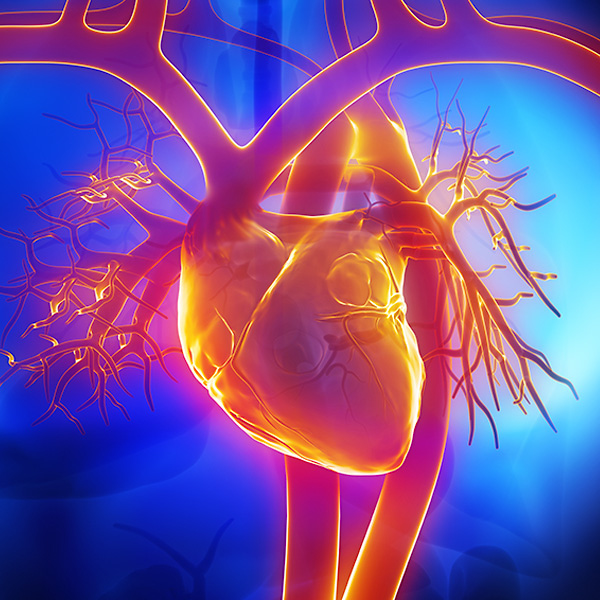Echocardiography Test
Diagnostic Test Assesses Heart Function and Damage
An echocardiogram is one of the many diagnostic tests interpreted by the highly skilled cardiologists at Loyola Medicine. Utilizing ultrasound to provide two- and three-dimensional images of your cardiovascular system, an echocardiogram measures blood velocity through your body, assesses the function of your heart muscle and detects damage to your heart and problems with your heart valves.
Echocardiography creates detailed heart images that detects abnormalities in your heart structure. Loyola offers the following echocardiography (sometimes referred to as simply “echo”) tests for patients:
- 3D echo — Uses multiple sensors and sonogram technology to look at the heart from all directions, see the complex anatomy of the heart and measure how well the heart is working.
- Doppler echo — Utilizes transthoracic echo (TTE) technology in conjunction with color flow, which creates a portion of waves, color pictures and audio signals to show the direction and speed of blood flow through the chambers and valves of the heart.
- Fetal echocardiogram — Uses specialized ultrasound to image a baby’s heart. It is a non-invasive way for a perinatologist to evaluate the heart while still in utero.
- Stress echo — Uses sound waves to examine the heart chamber while you exercise on a treadmill or stationary bicycle or with the use of medicines to stimulate the heart. This test can be used to visualize the motion of the heart's walls and pumping action when the heart is stressed.
- Transesophageal echocardiogram (TEE) — Utilizes an imaging tube placed in the esophagus, which enables clearer heart imaging. Sound waves are sent into your heart, reflected back and converted by a computer into pictures on a screen.
- Transthoracic echocardiogram (TTE) — Your doctor may request a TTE to evaluate the valves and chambers of your heart. This test uses sound waves to create clear images of your heart.
Echocardiograms assist with the diagnosis of the following heart conditions:
- Aneurysm
- Cardiac tumor
- Cardiomyopathy
- Congenital heart defect
- Congestive heart failure
- Coronary artery disease
- Endocarditis
- Pericarditis
- Valve disorders
Why Choose Loyola for Echocardiography?
Loyola’s cardiology and heart surgery program is nationally recognized for our diagnosis and treatment of cardiovascular conditions. We work with you to help you understand your condition and develop a treatment plan that is right for you.
What to Expect with Echocardiography
Traditional echocardiography is a non-invasive procedure that creates detailed images of your heart. During a traditional echocardiogram, a sonographer will attach three electrodes to your chest, which are connected to an electrocardiograph monitor (ECG). The ECG monitors your heart’s electrical activity, while the sonographer captures ultrasound images of your heart.
During a TTE or doppler echo, a small microphone is placed on your chest. Sound waves bounce off your heart through a microphone and a computer converts the waves into images. If you undergo a TEE, you will be given medication to help you relax and a local anesthesia to numb your throat.
What are the Risks of Echocardiography?
Traditional echocardiograms are generally safe and do not pose significant risk. Transesophageal echos may result in complications, including:
- Bleeding
- Breathing
- Heart rhythm problems
- Infection
- Oral or esophageal injury

Request an Appointment
Loyola Medicine heart and vascular specialists have the experience and technology to treat the most difficult cardiac and vascular conditions. Schedule an appointment today.
Schedule a Telehealth Appointment
